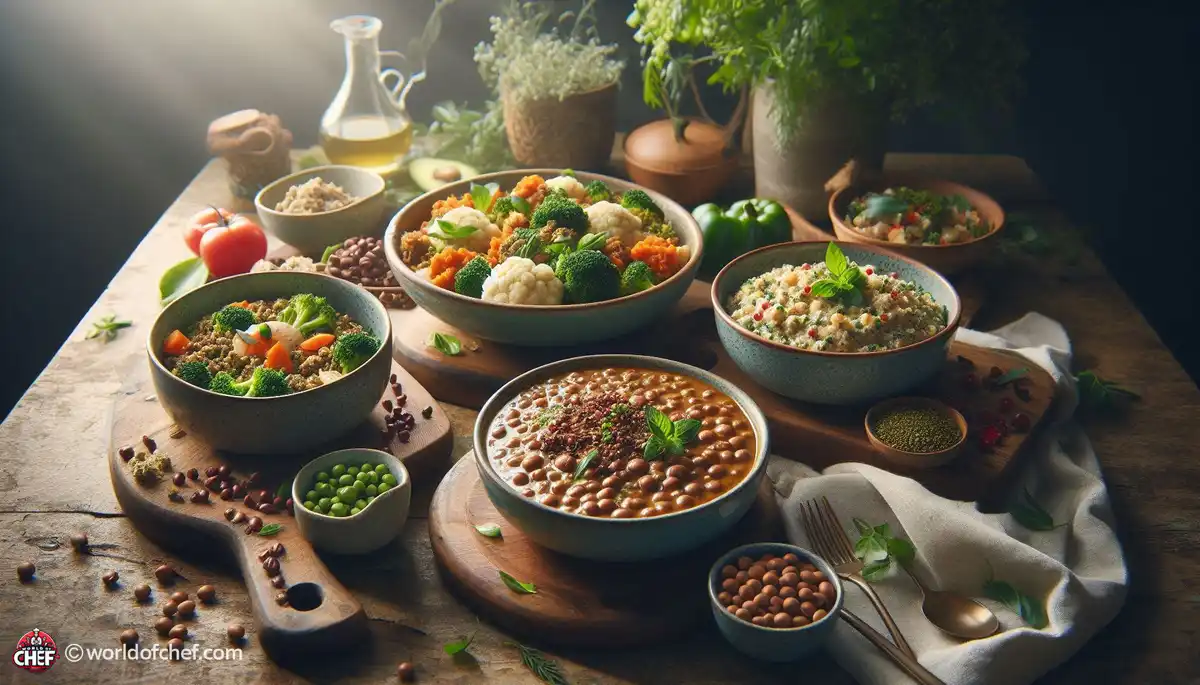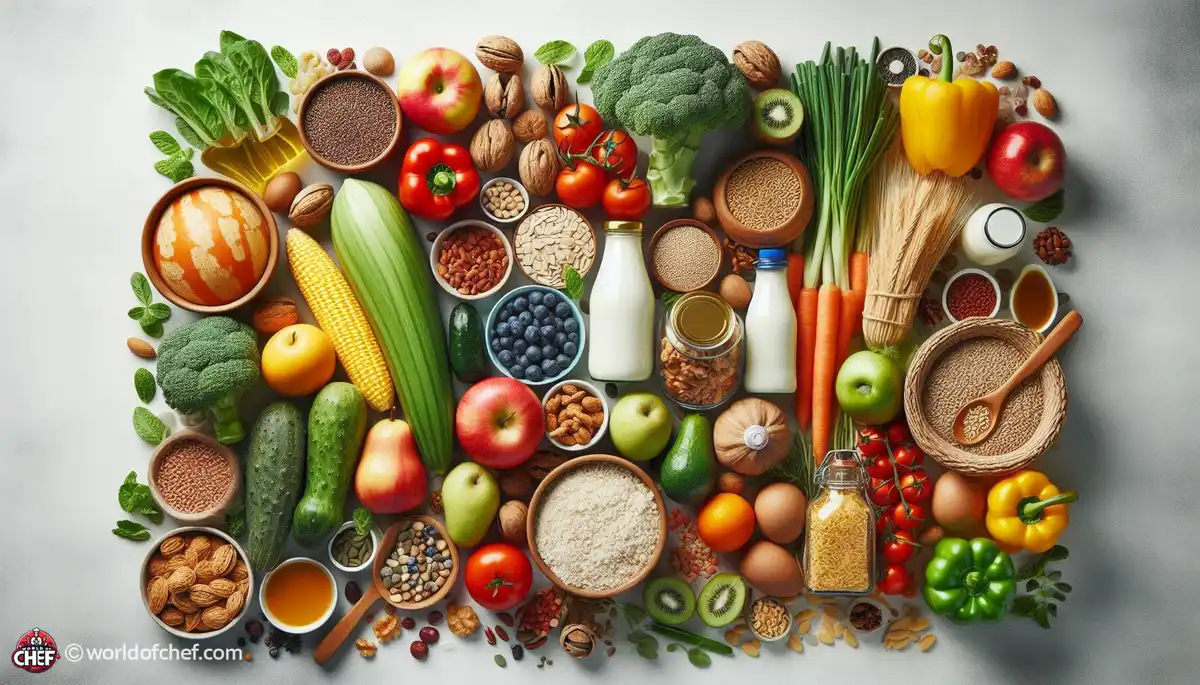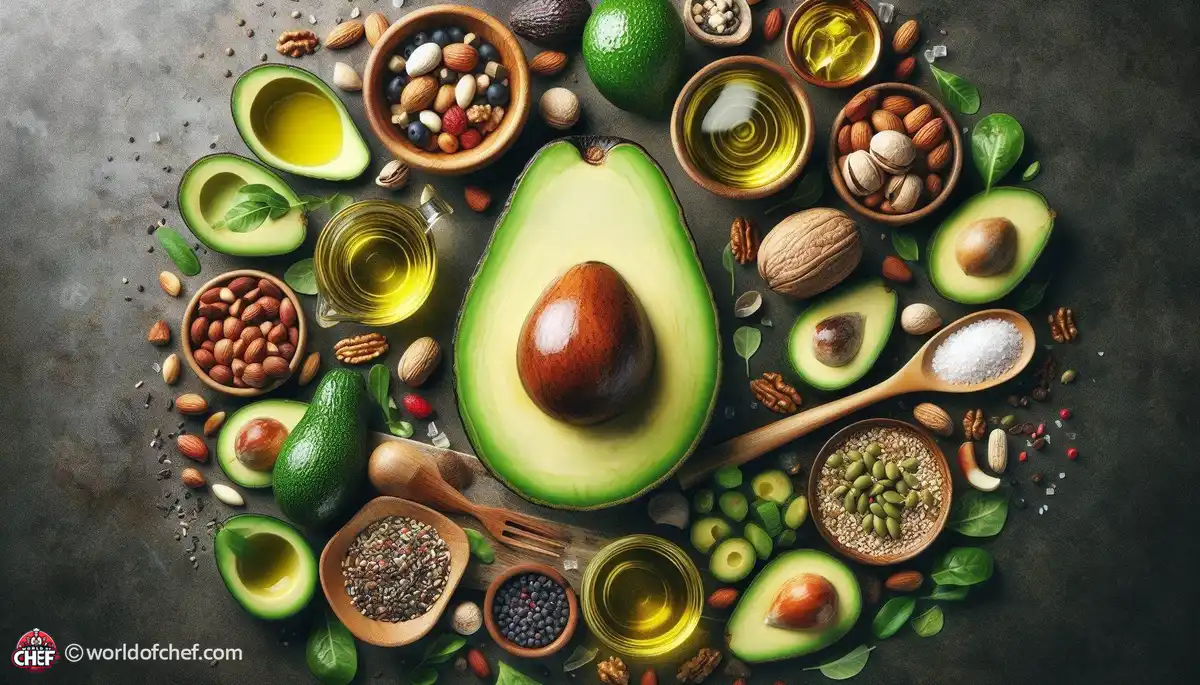
Dinner Delights: High-Fiber Recipes for Every Palate
Clarence Guido - Oct 7, 2024 - 7 min read


In today's world, health-conscious people are growing more conscious of the labeling of foods with "Non-GMO." This appears on the labels of food, and this has influenced most consumers. What does the term "Non-GMO" really mean? Quite simply, Non-GMO foods are those that haven't been genetically modified. This means they haven't been altered in a lab to change their genetic make-up. Instead, it is produced through traditional farmlines, which help preserve the integrity of the plant's natural genetic code.
The main reason to choose Non-GMO foods is that it is not a fad but a wise decision on the pretext of health and environmental consciousness. For example, most of them encourage sustainable agriculture for the purpose of preserving biodiversity. On top of that, most people are concerned that GMOs might be harmful for health. So, in this scenario, as far as the debate is concerned on the topic, it serves as a consolation for all those looking to minimize contact.
Sometimes, it is not easy to find your way through the aisles of a local grocery store to determine which products are Non-GMO. Organic certifications have been standardized by government agencies, but there is no standardization in labeling for Non-GMO products. Look instead for third-party certifications like the Non-GMO Project Verified seal, which means that a product has been independently verified to be free of genetically modified ingredients.
Whole grains will be the main ingredients for a healthy pantry because it provides the basic requirements to meet the nutrients and the dietary fibers. Selecting whole grains, such as quinoa, brown rice, and oats, that is certified Non-GMO should be considered. Apart from being a source of ingredients, whole grains can help boost the health of your gut system and stabilize your sugar levels in the blood.
Legumes and pulses are also nutritional powerhouses in terms of protein, fiber, and good vitamins and minerals. Include Non-GMO options of lentils, chickpeas, black beans into soups, salads, and stews. Since these plant-based protein sources are sustainable and budget-friendly, they not only enhance health but also promote the heart and can help people lose weight.
Cooking oils are essentials in every kitchen. However, not all oils are equal. While picking oils for your pantry, choose oils that are derived from Non-GMO sources such as organic sunflower oil, olive oil, and Coconut Oil. Such oils enhance the flavor of your food and provide necessary fatty acids that enhance the brain function and help the cardiovascular system.
Herbs and spices add depth and flavor to your dishes. Whenever you stock your pantry, choose organic and Non-GMO options. From the fragrant basil and savory rosemary to the spicy cayenne pepper and warm cinnamon, a well-stocked spice rack will allow you to elevate your dishes with the most vibrant flavors while avoiding potentially harmful additives and preservatives.
Condiments and sauces are the last touches that give life to your meals, but most of the commercially available condiments and sauces contain hidden GMO ingredients. Try using Non-GMO alternatives like organic ketchup, mustard, and soy sauce in order to add flavor to your favorite dishes without sacrificing quality or flavor. In addition, try experimenting with homemade condiments using fresh, natural ingredients to customize flavors and avoid unnecessary additives.
Sweeteners are a staple in the modern diet. Then there is refined sugar, which is sourced genetically modified. For natural sweetness, try Non-GMO sweeteners like organic honey, maple syrup, and coconut sugar. These hold more nutrients and antioxidants than others, and they always leave a rich, deep flavor to any recipe that you prepare.
Fresh Fruits are a boon from nature, rich in vitamins, minerals, and antioxidants that can benefit any person's health and well-being. While shopping for fruits, look for organic and Non-GMO whenever possible to limit pesticide intake while encouraging sustainable farming. Whether it is a crunchy apple, refreshing berries, or juicy peaches, including different varieties of fresh fruits in the diet adds color, taste, and nutritional value to every meal.
A diet abundant in vegetables will give your body the nutrients and fiber to be energized and at your best. If possible, select organic, Non-GMO vegetables to avoid synthetic pesticides and genetically modified organisms. Roasting seasonal root vegetables, sautéing Leafy Greens, or enjoying a crisp salad are all great ways to introduce a variety of fresh vegetables into your meals.
Fresh herbs and greens are culinary jewels that bring brightness, flavor, and nutritional value to your dishes. Whether you're adding fragrant basil leaves as a garnish to a salad, using fresh parsley to add depth to a sauce, or blending nutrient-rich kale into a smoothie, the inclusion of herbs and greens in your diet is an easy and impactful way to enhance your meals and promote overall health and well-being.
Nuts and seeds are a nutrient-dense snack that has a satisfying crunch and replete with Health Benefits. When you choose nuts and seeds for your pantry, use organic and Non-GMO varieties such as almonds, walnuts, chia seeds, and pumpkin seeds. These wholesome snacks are high in protein, healthy fats, and essential nutrients. They are perfect for those hunger pangs between meals and fueling your active lifestyle.
Dried fruits are an excellent convenient and easy-to-take snack that includes a burst of natural sweetness and good vitamins, minerals, and antioxidants. Dried fruits should be sugar-free and preservative-free; when available, try organic and Non-GMO options. With options such as tangy dried apricots, chewy raisins, or tart cranberries, dried fruits offer variety and nutrition to diet.
Popcorn has been a favorite snack for not only the young but even the old. However, most commercial popcorns made are from genetically modified and artificial additives. Instead, you should look for organic and Non-GMO kernels of popcorn and pop them home with your preferred method of cooking. Whether air popped, stove-top popped or using a popcorn machine homemade popcorn allows you to season and flavor according to preferences while avoiding unwanted additives and preservatives.
This way, one achieves the well-stocked pantry of non-GMO essentials-simple yet powerful support of health, sustainability, and pleasure in the pure natural flavor of wholesome foods. By choosing Non-GMO wherever possible and selecting products with no genetically modified ingredients are used, one does just that. The next time you step into a grocery store, consider restocking the whole grains, legumes, cooking oils, flavorful additions, fresh produce, and nourishing snacks for meal preparation that, instead of being only healthy, can be even as delectable.

Clarence Guido - Oct 7, 2024 - 7 min read

Lydia Timmerman - Oct 6, 2024 - 6 min read

Logan Trowbridge - Oct 6, 2024 - 7 min read

Wayne Tobar - Oct 4, 2024 - 8 min read